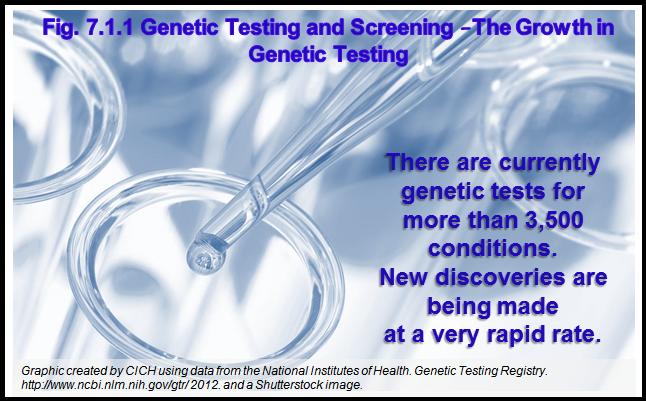Genetic Testing and Screening – The Growth in Genetic Testing

The demand for new genetic tests and genetic services is growing exponentially, largely because they are more readily available and affordable than ever before. In addition, genetic testing can now be used for both rare and common conditions.1 Requests for genetic tests and related services are increasing for chronic conditions, such as cardiovascular diseases, developmental delay, dysmorphic features, neurological disorders (e.g., neonatal seizures), and eye diseases (e.g., retinoblastoma).
In 2012, the Canadian Institutes of Health Research and Genome Canada announced a $65 million program to support research projects in the fields of genomics and personalized medicine. This could result in the development of new genetic tests for Canadians.2
Which health professionals are ordering genetic tests is also changing. Once exclusively the job of medical geneticists, now family doctors, oncologists, neurologists, cardiologists, haematologists, ophthalmologists, microbiologists, and pathologists frequently order genetic tests.1
Implications
These trends in expanding genetic testing capabilities call for greater coordination and streamlined service delivery to determine which tests should be provided, where, and by whom. The increased availability of, and demand for, genetic tests and related services will put increased pressure on current programs and services, especially for common diseases and conditions.1
1McMaster Health Forum. Evidence Brief: Coordinating the Use of Genetic Tests and Related Services in British Columbia. Hamilton, Canada: McMaster Health Forum; 2012.
2Canadian Institutes of Health Research. Harper government invests in personalized medicine. Canadian Institutes of Health Research; 2012. http://www.cihr-irsc.gc.ca/e/44825.html
